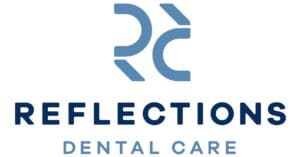A bite adjustment is an important dental procedure that involves modifying the surfaces of the teeth to ensure that they fit together properly when you close your mouth. A proper bite is crucial for both functionality and comfort, and a misaligned bite can lead to a range of dental problems. Understanding when a bite adjustment is necessary can help you maintain optimal oral health and avoid complications that may arise from bite misalignment. For those seeking professional care, general dentistry in Oklahoma City leads to solutions to correct bite issues and improve overall dental health.
What is Bite Adjustment?
Bite adjustment is a process where a dentist makes small alterations to the surface of your teeth or dental restorations to correct the way your teeth meet when you bite down. This procedure is typically performed when a patient experiences issues with their bite, such as discomfort or misalignment. The goal is to ensure that the upper and lower teeth come together evenly and that the jaw functions in a natural, relaxed position.
Signs You Might Need a Bite Adjustment
Several signs may indicate that you need a bite adjustment. These signs often stem from discomfort, difficulty eating, or dental problems related to misaligned teeth. Below are some common reasons a dentist might recommend a bite adjustment.
- Tooth Pain and Discomfort: One of the most common reasons for a bite adjustment is tooth pain caused by uneven pressure when biting down. If certain teeth are bearing more pressure than others, they may become sensitive or painful over time. This imbalance in bite force can cause discomfort while chewing, talking, or even at rest. A bite adjustment helps to relieve this pressure and balance the forces between the teeth.
- Teeth Grinding (Bruxism): Teeth grinding, or bruxism, can occur as a result of an improper bite. When the teeth do not fit together correctly, the muscles in the jaw may compensate by tightening, leading to grinding. This can cause tooth wear, jaw pain, headaches, and even damage to dental restorations. A bite adjustment can help reduce grinding by ensuring that the teeth come together in a way that minimizes the need for jaw muscles to overcompensate.
- Jaw Pain or Discomfort: If your teeth are not aligned correctly, it can affect the way your jaw moves. Misaligned teeth can place extra stress on the temporomandibular joint (TMJ), which connects the jaw to the skull. This can lead to jaw pain, stiffness, or difficulty opening and closing your mouth. A bite adjustment can improve the alignment of your teeth and reduce strain on the TMJ, alleviating pain and discomfort.
- Difficulty Chewing or Speaking: An improper bite can make it difficult to chew food properly, as uneven contact between the teeth can interfere with the natural chewing motion. In some cases, a misaligned bite can also affect speech, causing a lisp or difficulty pronouncing certain words. If you notice that chewing or speaking has become uncomfortable or challenging, a bite adjustment may be necessary to correct the alignment of your teeth.
- Wear and Tear on Teeth: Over time, an improper bite can cause excessive wear on specific teeth, leading to enamel loss and increased vulnerability to cavities and cracks. Teeth that are out of alignment may make contact with one another in an uneven manner, causing the enamel to wear down faster. A bite adjustment helps to restore even contact between the teeth and prevent further damage to the enamel.
- Cosmetic Concerns: In some cases, people may seek a bite adjustment for cosmetic reasons. An uneven bite can cause teeth to appear crooked or misaligned, even if there is no significant functional issue. While bite adjustments are typically performed to address health-related concerns, they can also improve the overall appearance of your smile by ensuring that your teeth are in proper alignment.
How is a Bite Adjustment Performed?
A bite adjustment is a relatively simple procedure that can often be completed in one visit to the dentist. During the procedure, your dentist will carefully examine your teeth and bite to identify any areas of misalignment. They may use a special marking paper to assess how the upper and lower teeth come together. If they notice areas of contact that are uneven or excessive, they will use dental tools to make small adjustments to the surface of the teeth.
In some cases, a bite adjustment may involve reshaping dental fillings, crowns, or veneers to ensure that they fit properly in the bite. For patients who have undergone orthodontic treatment, a bite adjustment may be necessary after braces or aligners are removed to fine-tune the final results.
When is a Bite Adjustment Necessary After Dental Procedures?
In some cases, bite adjustments may be required after certain dental procedures. For example, if you have recently had a filling, crown, or dental implant placed, your dentist may perform a bite adjustment to ensure that the new restoration fits properly with your existing teeth. Sometimes, dental work can inadvertently affect the way your teeth come together, which may require a minor adjustment to restore balance and comfort.
Similarly, if you undergo orthodontic treatment to straighten your teeth, a bite adjustment may be necessary after the braces are removed to ensure that your bite is fully aligned and functional.
A bite adjustment is an important procedure that helps address issues related to misalignment, discomfort, and oral function. Whether you’re experiencing tooth pain, jaw discomfort, or difficulty chewing, a bite adjustment can provide relief and restore proper alignment. If you think your bite may need adjusting, consult with your dentist to ensure the best outcome for your oral health. A simple adjustment can make a significant difference in both your comfort and dental well-being.
Need a Bite Adjustment? We’re Here to Help!
If you’re experiencing discomfort or difficulty with your bite, don’t wait to seek help. At Reflections Dental Care, we offer professional bite adjustment services to ensure your teeth align properly for optimal health. Call us today at (405) 751-4556 to schedule your consultation and get back to enjoying a pain-free smile!


